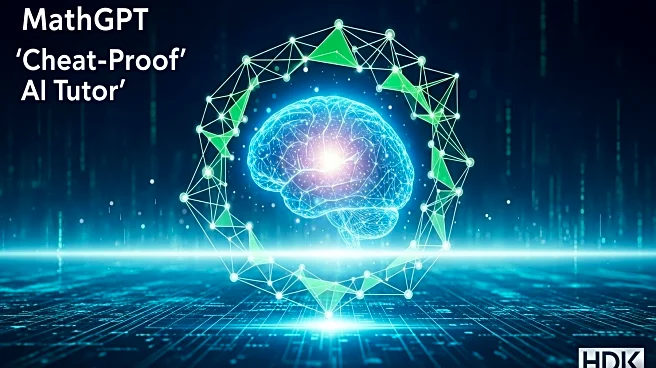What's Happening?
MathGPT.ai, an AI platform designed to serve as a 'cheat-proof' tutor and teaching assistant, is expanding its reach to over 50 educational institutions in the U.S. Initially launched last year, MathGPT.ai aims to provide an anti-cheating tutoring solution to college students and serve as a teaching assistant for professors. The platform's AI chatbot utilizes Socratic questioning to encourage critical thinking among students rather than simply providing answers. It has been successfully piloted at 30 colleges, including institutions like Penn State University and Tufts University. MathGPT.ai supports subjects such as Algebra, Calculus, and Trigonometry, and offers features like unlimited practice questions and auto-grading. Recent updates include integrations with major Learning Management Systems, screen reader compatibility, and an audio mode, enhancing accessibility for users with disabilities.
Why It's Important?
The expansion of MathGPT.ai is crucial in addressing academic integrity challenges in higher education. By fostering critical thinking and providing a structured learning environment, MathGPT.ai helps students develop essential problem-solving skills. The platform's focus on accessibility ensures that students with disabilities can benefit from its resources, promoting inclusivity in education. Additionally, MathGPT.ai's integration with Learning Management Systems streamlines the educational process for instructors, potentially enhancing teaching efficiency and student engagement.
What's Next?
MathGPT.ai plans to expand into additional subjects and develop a mobile app to increase accessibility. The company offers both a free version and a paid version at $25 per student per course, which includes benefits like unlimited AI assignments. As the platform grows, it may influence how educational institutions approach AI integration in classrooms, potentially setting new standards for digital learning tools.









